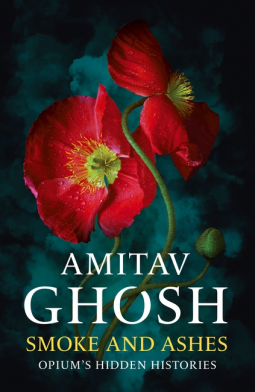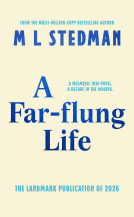
Smoke And Ashes
Opium's Hidden Histories
by Amitav Ghosh
This title was previously available on NetGalley and is now archived.
Send NetGalley books directly to your Kindle or Kindle app
1
To read on a Kindle or Kindle app, please add kindle@netgalley.com as an approved email address to receive files in your Amazon account. Click here for step-by-step instructions.
2
Also find your Kindle email address within your Amazon account, and enter it here.
Pub Date 15 Feb 2024 | Archive Date 22 Feb 2024
John Murray Press | John Murray
Talking about this book? Use #SmokeAndAshes #NetGalley. More hashtag tips!
Description
LONGLISTED FOR THE CUNDHILL HISTORY PRIZE
'An acerbic, compelling and always accessible account of how opium corrupted the world' TLS
'The writing is sublime, the research thorough, the eye for story superb' Sunday Telegraph
'A history of the opium poppy, which probes how the drug trade has shaped free-market capitalism and globalisation. The plant may look innocuous, but its story is one of profits and power' Economist, Book of the Year
When Amitav Ghosh began the research for his monumental cycle of novels the Ibis Trilogy, he was startled to find how the lives of the 19th century sailors and soldiers he wrote of were dictated not only by the currents of the Indian Ocean, but also by the precious commodity carried in enormous quantities on those currents: opium. Most surprising of all, however, was the discovery that his own identity and family history was swept up in the story.
Smoke and Ashes is at once a travelogue, memoir and a history, drawing on decades of archival research. In it, Ghosh traces the transformative effect the opium trade had on Britain, India, and China, as well as the world at large. The trade was engineered by the British Empire, which exported Indian opium to sell to China and redress their great trade imbalance, and its revenues were essential to the Empire's financial survival. Yet tracing the profits further, Ghosh finds opium at the origins of some of the world's biggest corporations, of America's most powerful families and prestigious institutions (from the Astors and Coolidges to the Ivy League), and of contemporary globalism itself.
Moving deftly between horticultural histories, the mythologies of capitalism, and the social and cultural repercussions of colonialism, in Smoke and Ashes Amitav Ghosh reveals the role that one small plant had in making our world, now teetering on the edge of catastrophe.
Available Editions
| EDITION | Other Format |
| ISBN | 9781529349245 |
| PRICE | £22.00 (GBP) |
| PAGES | 416 |
Available on NetGalley
Average rating from 11 members
Featured Reviews
 Reviewer 703837
Reviewer 703837
This is an impressive book that mixes an historical explanation of the British triangular trade in opium - having it grown in India and then shipped to China for consumption - with commentary and analyses that draw clear analogies between this trade and the contemporary opioid crisis in the US. There is also a kind of conclusion that the main protagonist in this story is actually the poppy plant, which works on humans creating cycles and patterns of behaviour. Greed develops the trade, undermines institutions that seek to limit, regulate or ban it, overwhelming them with criminal smuggling. Once the trade is exposed in its full destructive corruption the enriched greedy are able to insulate themselves from it, suppress judicial responsibility as well as media coverage and move on.
The cycle of behaviour is smoke (criminal energy) and then ashes (bleak destruction that almost goes beyond repair).
The book falls into 3 parts: 1) an account of the East India Company's development of opium production in India. The differences between the command-and-control management of this in East India (particularly Bihar/Calcutta) and the more free trade co-operation in the West (with Parsi merchants and local Maratha principalities) has left its mark on the developmental path of those regions to this day. This is a fascinating and detailed account that is beautifully laid out and a more than a bit staggering.
Unfortunately, the second section, on the way opium was imposed on China and how the government was effectively beaten into submission by traders, was equally staggering. It is the same story as told by James Clavell in his Tai-Pan, but with a very different moral framing. This section does a good job outlining the involvement of America's Boston aristocracy, clarifying how their vast income was converted into universities, foundations, museums, and other philanthropic culture-washing stuff.
The final section pulls together scattered allusions to the contemporary opioid crisis in the US. China's experience of being broken down by smugglers and having the authority and trust of its institutions hollowed out serves as a model. But so does its response through civil action groups and the forging of international consensus against the trade.
It is a fascinating book - the author has written several related works of activist history and a trilogy of novels on just this topic. It is not uplifting, but I loved the perspective shift from the terrible drama of addiction to the economic and botanical scales and timeframes. For this it reminded me of John Darwin's Unlocking the World (2020), which examined how steam power led to the creation of a network of port cities, each determining the fate of its own hinterland. Ghosh's book is outstanding and already a strong contender (already) for my Book of the year.
 Bernie G, Reviewer
Bernie G, Reviewer
Ghosh has written a fascinating exploration of the profound global consequences of that pretty red flower, the opium poppy. I find the events surrounding the Opium Wars to be among the most incredible stories humanity has written. It is mind-blowing that a substance could be so utterly addictive as to spur wars and global social and economic upheavals. That substance is, of course, tea. Ah, you thought I was going to say opium (or its relative, heroin,) didn't you? But while opium is fantastically addictive, its addicts were by-and-large in peaceful stupors in (or on) their clouds during the time in question. It is the uppity Earl Grey addict who was draining Britain's treasury of precious metals, and -- as addicts do in their impoverished desperation -- turned to dealing drugs.
There have been many books written on this subject, but Ghosh carves himself a niche. First, while accounts often focus tightly upon the central adversarial relationship of Britain versus China, Ghosh examines at leisure the roles of two lesser discussed players -- India (not only as a subject of Great Britain but also as an autonomous actor) and America. The importance of India's involvement, from being a major producer and processor of opium to sourcing the sepoys who actually fought the Opium Wars, has been largely ignored, and Ghosh helps to clear up distortions in the historical record. Second, the book investigates questions around America's opioid crisis and what history can tell us about its drivers. In particular, what does the China's explosion of addiction tell us about what might have spurred America's crisis?
This is a readable and compelling nonfiction exploration of the influence of opium from a writer who has produced novels (e.g. the "Sea of Poppies" trilogy) set around these historical events.
I'd highly recommend this book for individuals interested in the influence of Opium, particularly if one is curious about how history relates to the recent crises and what role Indians and Americans played in events.
Readers who liked this book also liked:
Catherine Merridale
General Fiction (Adult), Historical Fiction, Mystery & Thrillers
Linda Collister; National Trust Books
Cooking, Food & Wine, Crafts & Hobbies, Home & Garden
Chris Cook
History, Nonfiction (Adult), True Crime


















